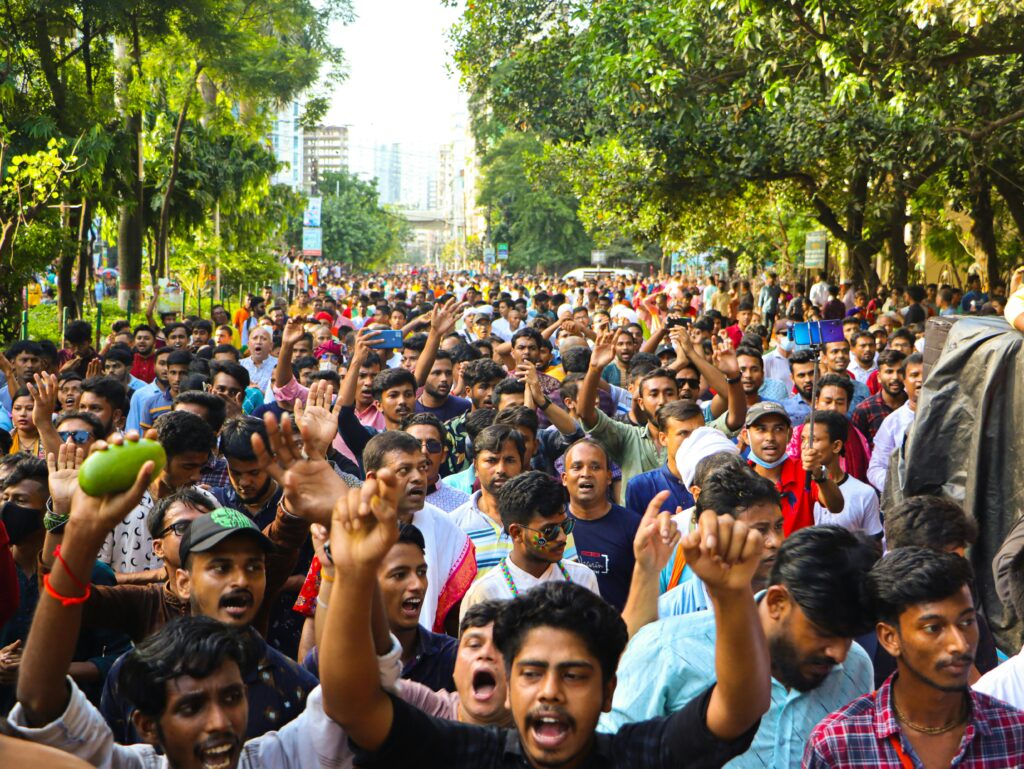Published on: 18th November 2025
Authored by: Mrunmayee Kulkarni
Abhinav Law College, Pune
- Case Title: K.S. Puttaswamy (Retd.) v. Union of India
- Citation: (2017) 10 SCC 1; AIR 2017 SC 4161
- Court: Supreme Court of India
- Bench: Nine-Judge Constitution Bench: J.S. Khehar (CJI), J. Chelameswar, S.A. Bobde, R.K. Agrawal, Rohinton F. Nariman, A.M. Sapre, D.Y. Chandrachud, Sanjay Kishan Kaul, and S. Abdul Nazeer, JJ.
- Date of Judgment: August 24, 2017
- Relevant Statutes / Key Provisions
- Article 14 – Right to Equality
- Article 19 – Freedom of Speech and Expression, and other freedoms
- Article 21 – Right to Life and Personal Liberty
Earlier Precedents:
- P. Sharma v. Satish Chandra (1954) – Held that privacy was not protected under the Constitution.
- Kharak Singh v. State of U.P. (1962) – Declared that the Constitution does not specifically recognize privacy.
- Brief Facts
In 2012, Justice K.S. Puttaswamy, a retired judge of the Karnataka High Court, filed a writ petition challenging the constitutional validity of the Aadhaar scheme introduced by the Government of India. Aadhaar was designed as a unique identification system based on biometric and demographic data of residents, with the aim of streamlining welfare services and preventing leakages.
The petitioner contended that the scheme violated the right to privacy of individuals, as it required them to part with sensitive biometric information, such as fingerprints and iris scans, without adequate safeguards.
Initially, the government argued that the Indian Constitution did not recognize privacy as a fundamental right. This claim was supported by earlier judgments such as M.P. Sharma (1954) and Kharak Singh (1962), where the Supreme Court had held that privacy was not explicitly guaranteed.
Given the conflicting positions in past precedents and the importance of the issue, a nine-judge Constitution Bench was constituted to decide whether the right to privacy was protected under the Constitution of India.
- Issues Involved
- Whether the right to privacy is protected as a fundamental right under the Constitution of India?
- If yes, whether privacy flows from the right to life and liberty under Article 21 or also from other fundamental rights in Part III of the Constitution?
- What are the reasonable limitations that the State can impose on the right to privacy?
- Arguments
Petitioner’s Arguments
- Right to Privacy is Intrinsic to Liberty: The petitioners argued that privacy is not merely an abstract concept but a necessary condition for the exercise of liberty and dignity under Article 21.
- Connection with Other Rights: They submitted that privacy is closely tied to other fundamental rights such as freedom of speech (Article 19), freedom of movement, and equality (Article 14).
- Global Recognition: International covenants such as the Universal Declaration of Human Rights (UDHR, 1948) and the International Covenant on Civil and Political Rights (ICCPR, 1966) recognize privacy as a human right, and India, being a signatory, has an obligation to protect it.
- Past Judicial Developments: Although M.P. Sharma and Kharak Singh had denied privacy, subsequent decisions like Gobind v. State of M.P. (1975), Rajagopal v. State of Tamil Nadu (1994), and PUCL v. Union of India (1997) recognized facets of privacy.
- Aadhaar and Surveillance State: The collection of biometric data could lead to mass surveillance and profiling of individuals, undermining democracy.
Respondent’s (Union of India) Arguments
- No Explicit Right in the Constitution: The Attorney General argued that the Constitution does not expressly guarantee a right to privacy. If the framers intended it, they would have mentioned it.
- Welfare Objective of Aadhaar: The government emphasized that Aadhaar was essential to ensure targeted delivery of welfare benefits, reduce corruption, and eliminate ghost beneficiaries.
- Reasonable Restrictions: Even if privacy were to be recognized, the State should have the power to impose restrictions in the larger public interest, especially for national security and efficient governance.
- Precedent Binding: The earlier Constitution Bench judgments in M.P. Sharma and Kharak Singh had already held that privacy was not a fundamental right, and those decisions were binding.
- Judgment
The Supreme Court delivered a unanimous judgment on 24 August 2017, declaring that the right to privacy is protected as a fundamental right under the Constitution of India.
The Court expressly overruled M.P. Sharma and Kharak Singh, holding that those rulings were based on a narrow understanding of the Constitution.
It emphasized that privacy is an inalienable aspect of human existence, essential for dignity, autonomy, and freedom. The Bench observed that constitutional interpretation must be dynamic and responsive to changing times.
The Court clarified that the right to privacy is not absolute. It can be restricted, but only under specific conditions:
- Legality – There must be a law authorizing the restriction.
- Necessity – The law must serve a legitimate State aim.
- Proportionality – The restriction must be necessary and proportionate to the purpose it seeks to achieve.
- Ratio Decidendi
- Privacy as a Fundamental Right: Privacy is a constitutionally protected right, intrinsic to life and liberty under Article 21.
- Intersection with Other Rights: Privacy also flows from the freedoms guaranteed under Article 19 and the equality principle under Article 14.
- Tests for Limitation: Any invasion of privacy by the State must satisfy the triple test of legality, necessity, and proportionality.
- Living Constitution: The interpretation of the Constitution must evolve to meet the challenges of modern society, including concerns about technology and data protection.
- Obiter Dicta
- Justice D.Y. Chandrachud: Stated that privacy encompasses personal autonomy, bodily integrity, informational control, and decisional freedom. He also famously overruled his father Y.V. Chandrachud’s opinion in ADM Jabalpur v. Shivkant Shukla (1976), stating that the earlier judgment was erroneous.
- Justice Chelameswar: Linked privacy with the concept of “right to be left alone.”
- Justice Kaul: Emphasized the protection of informational privacy in the digital era, noting the dangers of unregulated data collection by both the State and private entities.
- Final Decision
The Court unanimously held that:
- The right to privacy is a fundamental right under Part III of the Constitution.
- The judgments in M.P. Sharma and Kharak Singh were overruled to the extent that they denied privacy.
- While privacy is not absolute, any restriction must satisfy the tests of legality, necessity, and proportionality.
The Aadhaar scheme itself was not struck down in this judgment; instead, the case laid the foundation for later challenges to Aadhaar, which were adjudicated in Puttaswamy (Aadhaar-2) in 2018.
Broader Impact and Significance
This case has been hailed as a watershed moment in Indian constitutional law. It significantly expanded the scope of fundamental rights by recognizing privacy as intrinsic to human dignity and liberty. The judgment has had far-reaching consequences, including:
- Data Protection: It created the foundation for the drafting of a comprehensive data protection law in India, eventually leading to the Digital Personal Data Protection Act, 2023.
- Personal Autonomy: It strengthened individual rights in matters of sexuality, reproductive choices, and family life. Later cases, like Navtej Singh Johar v. Union of India (2018), relied on this judgment to decriminalize homosexuality.
- Checks on State Power: It reinforced the principle that State surveillance and data collection must be proportionate and lawful.
- Judicial Legacy: The decision reaffirmed the judiciary’s role as the guardian of fundamental rights in a rapidly changing digital society.




